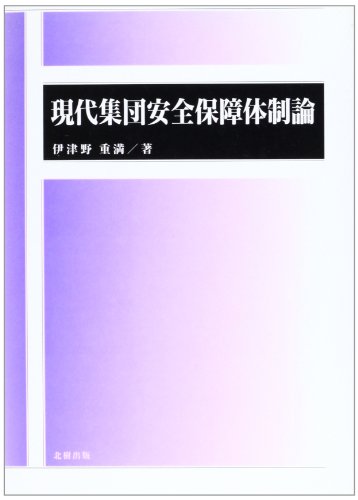9 0 0 0 OA 中立国の法的義務に関する考察
- 著者
- 伊津野 重満
- 出版者
- 文教大学
- 雑誌
- 文教大学国際学部紀要 = Journal of the Faculty of International Studies Bunkyo University (ISSN:09173072)
- 巻号頁・発行日
- vol.3, pp.19-30, 1993-01-01
After the USSR was dissolved, circumstances have qickly changed politically, economically and ideologically.Austria and Switzerland, permanently neutral states, which have been member states of the EFTA, have wanted to become member states of the EC since 1961. The USSR, Czechoslovakia and so on have, however, objected to their becoming member states of the EC because it would violate their legal status as neutral states. So permanently neutral states above mentioned and Sweden, ocasionally neutral states, could not become member states of the EC notwithstanding their wishes. That is because, if neutral states obtain membership in the EC, in the future they may be obliged by the EC to apply economic sanctions against belligerents due to it's common economic policy.But nowadays the concept of permanent neutrality ― immerw?hrende Neutralit?t ― and occasonal neutrality ― gelegentliche Neutralit?t ― is strongly affected by the dissolution of USSR and is changing.As is widely known, today the Republic of Russia as a successor of USSR is no longer a super power which could prevent neutral states from becoming member states of the EC, and has not the political motive to do so. It is therefore essential to consider for the future what the legal obligations of neutral states at present are.From the viewpoint of traditional international law, the auther tries to describe the obligations of occasonal neutral states in war time and permanently neutral states in peace time.
2 0 0 0 IR 中立国の法的義務に関する考察
- 著者
- 伊津野 重満
- 出版者
- 文教大学
- 雑誌
- 文教大学国際学部紀要 (ISSN:09173072)
- 巻号頁・発行日
- vol.3, pp.19-30, 1993
After the USSR was dissolved, circumstances have qickly changed politically, economically and ideologically.Austria and Switzerland, permanently neutral states, which have been member states of the EFTA, have wanted to become member states of the EC since 1961. The USSR, Czechoslovakia and so on have, however, objected to their becoming member states of the EC because it would violate their legal status as neutral states. So permanently neutral states above mentioned and Sweden, ocasionally neutral states, could not become member states of the EC notwithstanding their wishes. That is because, if neutral states obtain membership in the EC, in the future they may be obliged by the EC to apply economic sanctions against belligerents due to it's common economic policy.But nowadays the concept of permanent neutrality ― immerwährende Neutralität ― and occasonal neutrality ― gelegentliche Neutralität ― is strongly affected by the dissolution of USSR and is changing.As is widely known, today the Republic of Russia as a successor of USSR is no longer a super power which could prevent neutral states from becoming member states of the EC, and has not the political motive to do so. It is therefore essential to consider for the future what the legal obligations of neutral states at present are.From the viewpoint of traditional international law, the auther tries to describe the obligations of occasonal neutral states in war time and permanently neutral states in peace time.
1 0 0 0 現代集団安全保障体制論
1 0 0 0 IR 核兵器使用の合法性に関する国際司法裁判所の勧告的意見 : その概要と論点
- 著者
- 伊津野 重満
- 出版者
- 学術雑誌目次速報データベース由来
- 雑誌
- 早稻田法學 (ISSN:03890546)
- 巻号頁・発行日
- vol.74, no.3, pp.27-64, 1999
